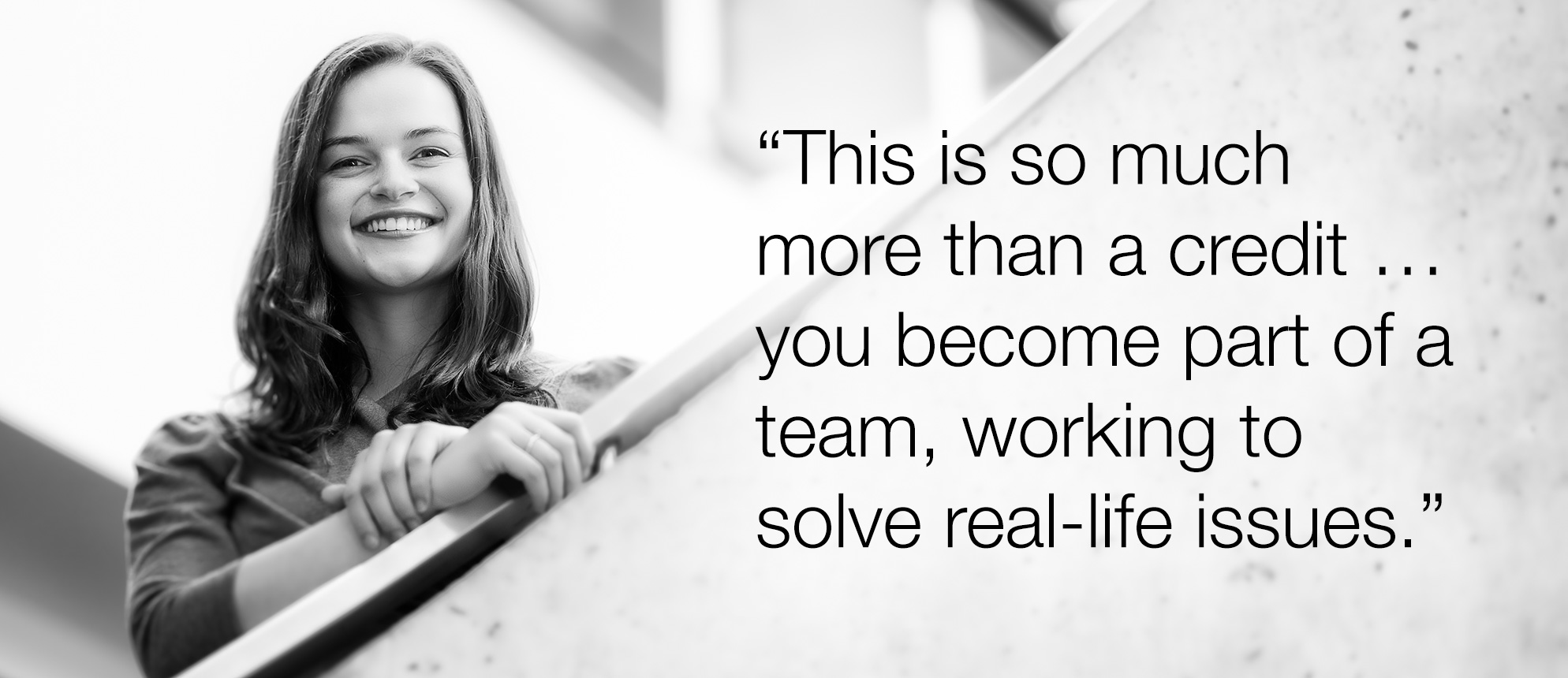

As she walked up the steps to an elementary school in Toronto’s east end, Holly Boyne wanted to keep her expectations in check. It was the first day of the third-year psychology student’s field placement and she knew how lucky she was to be there. Since Holly started the University of Guelph-Humber’s psychology program in 2012, she hoped to one day be a school psychologist, and now she was getting a chance to work with one.
After they’d met and Holly was given a tour, she and the psychologist had a discussion about professional ethics. Holly was there to learn about the work of a psychologist, so confidentiality was essential, and she would be closely supervised. After that, Holly was reviewing case files, working with the psychologist to compare the file’s information to the diagnostic criteria for autism.
“Eventually,” Holly says, “she had me doing work that she used for her assessments. She looked it over, reviewed my work and told me good job.”
For the next 12 weeks, Holly got an inside look at the working life of a school psychologist.
Although Holly had a number of options available for her placement, she had a very specific vision of what she wanted. With her heart set on work in an elementary school, she spent considerable time in the fall calling psychologists across the city to find the right supervisor. Once she found a match, the real work began.

“It was going from what I’d been learning for two and a half years to actually experiencing it,” Holly says. “I was there as a student, but she treated me like a professional. In that environment, I was challenged every day.”
One day she was exposed to the administration of assessment tests, on another she got to hear about the pros and cons of different in-school accommodation programs, still another she learned about communicating with parents about the best care for their child. Most days though, she was invited to sit in on meetings. Lots of meetings. Holly got to learn from vice-principals, principals, speech pathologists, social workers and see how they all work together to come up with the best plan for each student.
“People can underestimate the power of a placement, but it’s so much more than just a credit,” she says. “You’re put in a place where, although you’re a student, you become part of a team, working to solve real-life issues. You bring what you’ve learned from class and get to put it into action.”
Once her placement was up, Holly felt like she’d just touched the surface of everything there was to know about the job. Nonetheless, that time spent in the school gave her a little more clarity about what she would do after graduation.
“I knew this was what I wanted to do, but before my placement it always just felt like an option — one of the things I could choose,” she says. “Once I spent some time there it stopped being, ‘if I go to grad school to study this’ and became ‘when I go to grad school to study this.’ That wouldn’t have happened without it.”
Learn more about Placement Services at UofGH.
Learn more about Psychology at UofGH.

